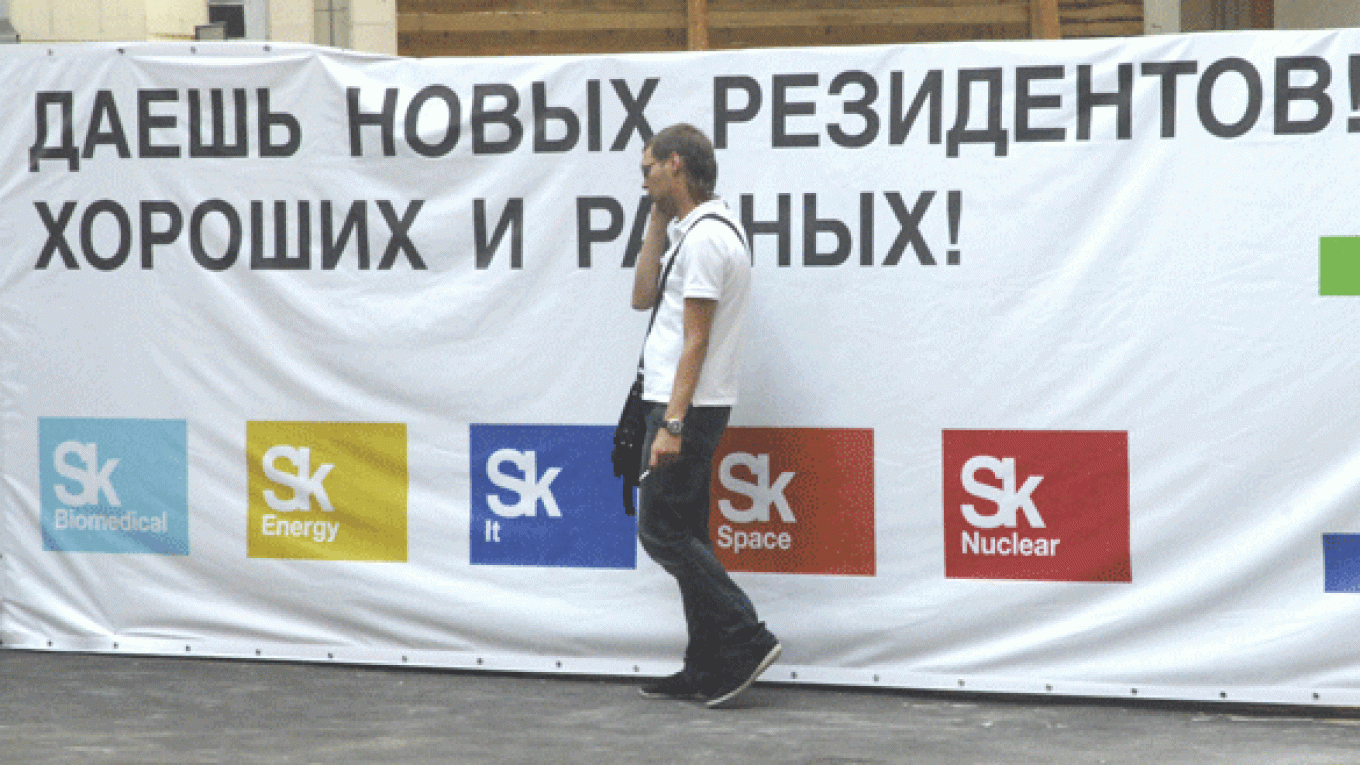Dmitry Asonov, founder and sole employee of startup software company Proofreading Lab, is clear about what his newly gained residency at the Skolkovo innovation center gives him.
“The primary reason I applied for Skolkovo residency is money,” Asonov said. Skolkovo not only offers a grant of $50,000 for small businesses, but more importantly will match any investments the businesses can attract by a factor of up to three. This co-finance strategy adds immediate value to the startup and is a powerful incentive to outside investors.
Asonov’s company — whose product he claims is the most sophisticated proofreading software available, capable of picking up textual errors far more intelligently than a spell checker — was the 89th firm to gain resident status in the government’s showcase effort to spawn innovation and wean the economy off its dependence on natural resources.
To gain resident status, a company must be a Russian legal entity. It is not even necessary to have the company registered at the time of application.
“I applied as a private person. This meant writing a 10-page summary of the project, including development lines and commercial plans.” The application was then submitted through Skolkovo’s web site.
Applications are evaluated by a randomly selected group of 10 out of the approximately 100 Russian and international businesspeople and researchers on the Skolkovo evaluation committee. If more than half the evaluators give a positive review, it means acceptance as a Skolkovo resident.
Asonov registered the company, and Proofreading Labs was accepted as a Skolkovo resident within three months.
Skolkovo residents also receive immediate tax breaks — they pay no profit tax and a significantly lower salary tax than nonresidents.
Asonov’s second major reason for applying for Skolkovo residency was Skolkovo’s huge bank of government contacts, which he refers to as “GR” or “government relations.” He now has channels to reach people responsible for decisions about major government web sites, which are primary targets for Proofreading Lab’s services.
Despite the absence of a physical site — the innovation city will only see its first occupants in 2015 — Asonov is excited about the social network and pool of contacts he gains with his new status.
Asked what he would have done without his Skolkovo residency, Asonov replied that it would not have been a catastrophe, but the residency makes things much easier for him.
Asonov also sees an advantage in the level of transparency Skolkovo demands. All moneys awarded through Skolkovo’s co-financing are displayed in detail on their web site. Residents who receive co-financing are regularly reviewed by the Skolkovo investment committee.
A Message from The Moscow Times:
Dear readers,
We are facing unprecedented challenges. Russia's Prosecutor General's Office has designated The Moscow Times as an "undesirable" organization, criminalizing our work and putting our staff at risk of prosecution. This follows our earlier unjust labeling as a "foreign agent."
These actions are direct attempts to silence independent journalism in Russia. The authorities claim our work "discredits the decisions of the Russian leadership." We see things differently: we strive to provide accurate, unbiased reporting on Russia.
We, the journalists of The Moscow Times, refuse to be silenced. But to continue our work, we need your help.
Your support, no matter how small, makes a world of difference. If you can, please support us monthly starting from just $2. It's quick to set up, and every contribution makes a significant impact.
By supporting The Moscow Times, you're defending open, independent journalism in the face of repression. Thank you for standing with us.
Remind me later.


